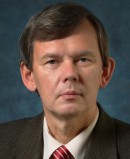

Plenary Lecture
Concept of Sustainable Development under Pressure of Crisis: Case Study of Latvia

Professor Maris Klavins
Department of Environmental Science
University of Latvia
Riga, Latvia
E-mail: maris.klavins@lu.lv
Abstract: The sustainability concept is recognized as one of the key importance principles for the development and its planning. In the same time the actual importance of the sustainability in the development process differs quite significantly worldwide. Also in Latvia sustainable development (SD) is considered as a basic principle for the development of the country at the level of the basic state policy declarations. This is especially important if financial resources are limited, when society is faced by major social, economic and environmental problems as in the Baltic States. Sustainable development planning include possible solution identification, economic considerations, the public opinion formation process and scientific expertise as well as subjective factors in connected with the general process in the society. Economical aspects do have a great importance in the setting the priorities. The processes influencing sustainability prospects in Latvia and its impact on environmental policy depending on problems of restructuring of national economy has been studied. The communities of western countries play a great role in the transition process and the increased internationalization of identified problems. Of these, environmental problems have a high priority. Environmental problems are often international such as transboundary transport of airborne substances and pollution of the Baltic Sea. The internationalization of environmental questions plays a crucial role in the strengthening of democratic traditions and newly developed democratic institutions in the formed Republics. Thus, the rapidly changing economic system, and also character of environmental problems requires development of environmental policy oriented towards local rather than international problems.
However the actual interpretation of the sustainable development concept even at the level of state policies does not follow the basic principles of the SD. The sustainability concept often is identified as a need to develop nature protection capacity and classical conservationism is regarded as a basic element of the SD.
In this study the role of sustainable development has been analysed from perspective of its importance in the national planning processes and analysis of achieved progress. A major emphasis has been put on the analysis of economic crisis on the implementation of sustainable development. As a significant part of the sustainable development is considered the character of development and implementation of SD in the planning of cities and in general, urban territories. A new challenge for the demonstration of the readiness to follow the sustainable development is the ongoing development planning process and the existing way of development of national economy.
The achieved progress in environmental education in Latvia can support the development of education for sustainable development aimed at the promotion of values and ethics through education at different levels in order to make an impact on people's lifestyles and behavior and help to build a sustainable future.
Brief Biography of the Speaker: Maris Klavins graduated from the University of Latvia in 1979, doctoral dissertation defended in Moscow University (Russia) in 1985, but habilitation thesis in University of Latvia in 1993. Maris Klavins (professor, dr.habil.chem.) is head of Environmental science department of Faculty of Geography and Earth sciences, University of Latvia. M.Klavins is member of editorial boards of 6 scientific journals, member of 3 societies related to environmental chemistry issues and full member of Academy of Sciences of Latvia. M.Klavins has been leader of several projects related to the environmental issues mostly doing with environmental pollution and management, and quality of water, but including also political and social sciences and sustainable development science.